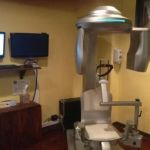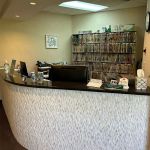How Dental Appliances for Sleep Apnea Work
- 1. What Are Dental Appliances for Sleep Apnea?
- 2. How Do Dental Appliances Work for Sleep Apnea?
- 3. Types of Dental Appliances for Sleep Apnea
- 4. Who Should Consider Dental Appliances for Sleep Apnea?
- 5. Benefits of Dental Appliances for Sleep Apnea
- 6. How to Choose a Dental Appliance for Sleep Apnea
- 7. Treatment Success and Monitoring
- 8. Conclusion: Taking Control of Your Sleep Health
1. What Are Dental Appliances for Sleep Apnea?
Dental appliances, also known as mandibular advancement devices (MADs), are custom-made mouthpieces designed to help people with sleep apnea. These devices work by repositioning the jaw and tongue to prevent the airway from collapsing during sleep, thus reducing or eliminating snoring and improving overall sleep quality.
For individuals suffering from obstructive sleep apnea (OSA), dental appliances can provide an effective alternative to CPAP machines, especially for those who find CPAP therapy uncomfortable or difficult to tolerate.
2. How Do Dental Appliances Work for Sleep Apnea?
Dental appliances work by repositioning the lower jaw slightly forward, which helps keep the airway open. This repositioning prevents the soft tissues of the throat from collapsing during sleep, which is the main cause of obstructive sleep apnea episodes.
By gently moving the jaw forward, dental appliances create more space in the airway, allowing for better airflow. This helps prevent the pauses in breathing that are characteristic of sleep apnea, leading to improved sleep and reduced symptoms such as daytime fatigue and headaches.
3. Types of Dental Appliances for Sleep Apnea
There are several different types of dental appliances available for sleep apnea treatment. The most common types include:
- Mandibular Advancement Devices (MADs): These are the most commonly used dental appliances. They work by advancing the lower jaw to keep the airway open.
- Tongue Retaining Devices (TRDs): These devices hold the tongue in a forward position to prevent it from blocking the airway during sleep.
- Custom-Fit Dental Appliances: These are personalized devices designed specifically for each individual’s mouth and jaw structure, offering a higher level of comfort and effectiveness.
The type of device that will work best depends on the severity of your sleep apnea, your comfort preferences, and your dentist's recommendations.
4. Who Should Consider Dental Appliances for Sleep Apnea?
Dental appliances are most effective for people with mild to moderate obstructive sleep apnea (OSA). They may also be recommended for individuals who:
- Find CPAP therapy uncomfortable or inconvenient.
- Experience snoring but have not been diagnosed with full sleep apnea.
- Need a portable solution for sleep apnea treatment, especially while traveling.
- Have not had success with other treatments like lifestyle changes or weight loss.
However, dental appliances may not be suitable for those with severe sleep apnea or certain jaw and dental problems. A consultation with a dentist or sleep specialist is essential to determine if a dental appliance is the right treatment for you.
5. Benefits of Dental Appliances for Sleep Apnea
Dental appliances offer several benefits over other treatments for sleep apnea, such as:
- Improved Sleep Quality: By preventing airway obstructions, dental appliances allow for uninterrupted sleep, leading to better rest and reduced daytime fatigue.
- Non-Invasive and Comfortable: Unlike surgery or CPAP, dental appliances are non-invasive and generally more comfortable for many users.
- Portability: Dental appliances are small and easy to travel with, making them a convenient option for those who need sleep apnea treatment on the go.
- Customizable: These devices can be customized to fit the unique shape of your mouth, ensuring a comfortable and effective treatment.
Overall, dental appliances are a less intrusive, portable, and effective way to manage sleep apnea and improve sleep quality.
6. How to Choose a Dental Appliance for Sleep Apnea
When choosing a dental appliance for sleep apnea, it's important to consider factors such as comfort, effectiveness, and whether it addresses your specific symptoms. Here are some steps to follow:
- Consult a Sleep Specialist: A sleep study or consultation with a doctor can help determine the severity of your sleep apnea and whether a dental appliance is appropriate.
- Get a Custom Fit: Visit a dentist experienced in sleep apnea treatment to have a custom dental appliance made for your mouth. This will ensure the device fits properly and provides maximum comfort.
- Consider Lifestyle Factors: If you travel frequently or have a busy lifestyle, choose a portable, easy-to-carry appliance that meets your needs.
By following these steps and working with healthcare professionals, you can find the best dental appliance for your needs and enjoy better sleep quality.
7. Treatment Success and Monitoring
Once you begin using a dental appliance, it’s important to monitor its effectiveness. Your dentist will schedule follow-up appointments to ensure the appliance is working as intended and that your sleep apnea symptoms are improving. Regular adjustments may be necessary to maintain comfort and maximize effectiveness.
It’s also crucial to monitor your sleep patterns. If you continue to experience symptoms like excessive daytime sleepiness or loud snoring, it may be necessary to revisit your treatment plan with your doctor or dentist.
8. Conclusion: Taking Control of Your Sleep Health
Dental appliances for sleep apnea offer a practical, comfortable, and effective way to manage sleep apnea symptoms. Whether you're looking for an alternative to CPAP therapy or seeking a portable solution, these devices can help you achieve better sleep and improved overall health.
To learn more about how dental appliances can benefit you or to explore options for treatment, visit Dentistry Toothtruth for expert guidance and personalized care. Start taking control of your sleep health today!







 Jennifer Cha, DMD, MS5.0 (5 review)
Jennifer Cha, DMD, MS5.0 (5 review) River Run Dental4.0 (356 review)
River Run Dental4.0 (356 review) Shoal Creek Dental Care5.0 (833 review)
Shoal Creek Dental Care5.0 (833 review) Pioneer Valley Dental4.0 (1014 review)
Pioneer Valley Dental4.0 (1014 review) Dentistry at 1818 Market Street4.0 (686 review)
Dentistry at 1818 Market Street4.0 (686 review) Quadrant Dental at Deerfield5.0 (32 review)
Quadrant Dental at Deerfield5.0 (32 review) The Importance of Oral Health Education During Pregnancy for a Healthy Pregnancy
The Importance of Oral Health Education During Pregnancy for a Healthy Pregnancy Best Tips for Brushing Your Teeth Properly for Healthy Gums: Essential Techniques for Oral Health
Best Tips for Brushing Your Teeth Properly for Healthy Gums: Essential Techniques for Oral Health Why Skipping Dental Checkups Can Lead to Bigger Oral Health Problems
Why Skipping Dental Checkups Can Lead to Bigger Oral Health Problems Advantages of Porcelain Dental Restorations
Advantages of Porcelain Dental Restorations How Can Diabetes Cause Tooth and Gum Problems? Preventing and Managing Oral Health Issues
How Can Diabetes Cause Tooth and Gum Problems? Preventing and Managing Oral Health Issues Healthy Habits for Promoting Good Oral Health and Hygiene: Tips for a Healthy Smile
Healthy Habits for Promoting Good Oral Health and Hygiene: Tips for a Healthy Smile